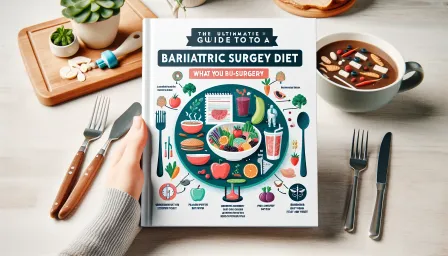Understanding Hormonal Balance and Menopause: A Comprehensive Guide

Gain insight into hormonal balance and menopause, their impact, and tips to manage symptoms effectively in this comprehensive guide.
Hormonal balance plays a crucial role in a woman's overall health, particularly during menopause. This period marks a significant transition in a woman's life, often characterized by various physical and emotional changes. Understanding what hormonal balance and menopause entail can help manage symptoms and maintain well-being.
What is Hormonal Balance?
Hormonal balance refers to the optimal functioning of the endocrine system, where hormones are produced and regulated suitably. Hormones like estrogen, progesterone, and testosterone are vital for numerous bodily functions, including metabolism, mood, and reproductive health. When balanced, these hormones ensure bodily systems operate seamlessly.
Understanding Menopause
Definition and Stages of Menopause
Menopause is the natural biological process marking the end of a woman's menstrual cycles, typically occurring in her late 40s or early 50s. It is divided into three stages:
- Perimenopause: The transitional phase leading up to menopause, where hormonal fluctuations begin.
- Menopause: Defined as the point when a woman has not had a menstrual period for 12 consecutive months.
- Postmenopause: The phase following menopause, where symptoms may gradually ease.
Symptoms of Menopause
Menopause can bring a range of symptoms due to hormonal imbalances, including:
- Hot flashes and night sweats
- Mood swings and depression
- Sleep disturbances
- Vaginal dryness and discomfort during intercourse
- Decreased libido
- Weight gain and slowed metabolism
Maintaining Hormonal Balance During Menopause
Diet and Nutrition
Nutritional choices play a significant role in hormonal health. To maintain balance, consider incorporating the following into your diet:
- Phytoestrogens: Foods like soy and flaxseeds contain natural compounds that mimic estrogen and can help alleviate symptoms.
- Healthy fats: Omega-3 fatty acids found in fish, nuts, and seeds support hormonal production.
- Balanced diet: A diet rich in fruits, vegetables, whole grains, and lean proteins supports overall health and helps maintain stable blood sugar levels.
Physical Activity
Regular exercise is essential for managing menopausal symptoms. Activities such as walking, yoga, and strength training can help:
- Maintain a healthy weight
- Reduce stress and improve mood
- Strengthen bones and reduce the risk of osteoporosis
Stress Management
Stress can exacerbate hormonal imbalances, so incorporating stress-reduction techniques is vital. Practices such as meditation, deep breathing exercises, and mindfulness can significantly alleviate stress levels.
Hormone Replacement Therapy (HRT)
HRT is a treatment option for managing severe menopausal symptoms by supplementing estrogen and progesterone. While effective, it is essential to discuss the risks and benefits with a healthcare provider, as HRT may not be suitable for everyone.
Alternative Therapies
Herbal Supplements
Many women find relief through herbal supplements, including black cohosh, red clover, and evening primrose oil. While beneficial for some, it's crucial to consult with a healthcare provider before starting any supplement regimen.
Acupuncture
Acupuncture, an ancient Chinese medicine practice, has been shown to help reduce hot flashes and other menopausal symptoms by promoting energy balance and improving overall well-being.
Mind-Body Practices
Practices such as yoga and Tai Chi can help manage stress, improve flexibility and strength, and promote a sense of well-being.
When to Seek Medical Advice
While menopause is a natural phase of life, it is essential to seek medical advice if symptoms severely impact your quality of life. Regular check-ups can help manage symptoms effectively and rule out other potential health issues.
Conclusion
Understanding hormonal balance and menopause is key to navigating this life stage with grace and health. Maintaining a balanced diet, engaging in regular physical activity, managing stress, and exploring both conventional and alternative therapies can significantly improve well-being during menopause. Always consult with healthcare professionals to tailor a plan that best suits your individual needs.


























